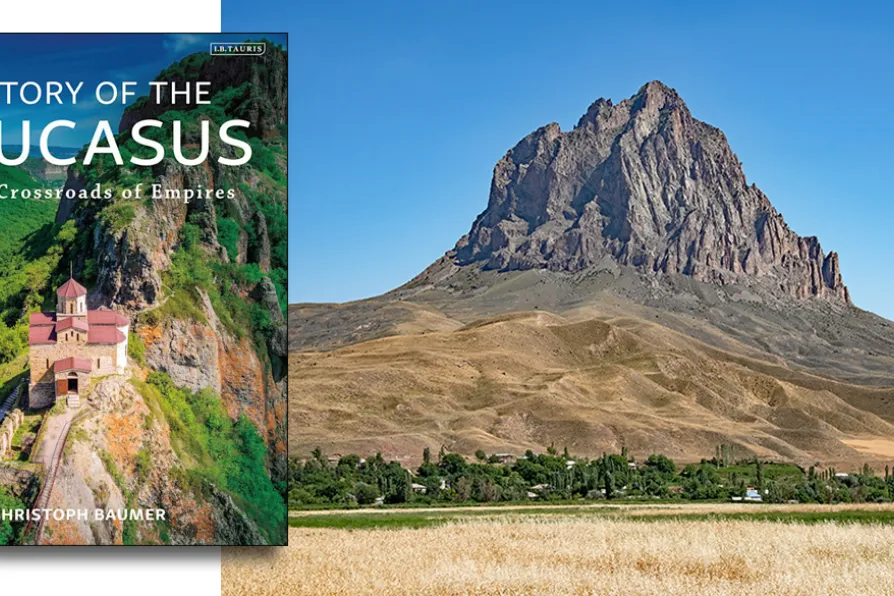MARJORIE MAYO recommends an accessible and unsettling novel that uses a true incident of death in the Channel to raise questions of wider moral responsibility
Page after page of wondrous revelation
The largely unknown and historically neglected Caucasus emerges as a land of never-ending fascination, writes STEVE ANDREW

 (L to R) Cover: the three-nave Alanian church of Shoana from the early 10th century in Karachay-Cherkessia, Russian Federation; The 2,415-metre-high mountain Ilandagh, the ‘Snake Mountain,’ in Nakhchivan, Azerbaijan
(L to R) Cover: the three-nave Alanian church of Shoana from the early 10th century in Karachay-Cherkessia, Russian Federation; The 2,415-metre-high mountain Ilandagh, the ‘Snake Mountain,’ in Nakhchivan, Azerbaijan
History of the Caucasus Vol 1
At the Crossroads of Empire
by Christoph Baumer
IB Tauris £27
BY any standard, the Caucasus is a vast geographical area, dominated by beautiful landscapes of snow-capped mountains and steep-sided valleys, its often unique ecosystems harbour a multitude of fascinating animal and plant species.
Its human population is likewise just as interesting, composed as it is of a complex and ever-changing plethora of nations, languages, and cultures.
Although the term “cultural hearth” has fallen out of favour in anthropological circles, if ever it could be applied to an area, then the Caucasus would definitely fit the remit, antecedents to many a civilisation having their origins there.
Similar stories

JOHN GREEN recommends a history of the Black Sea peninsula, situated at a crossroads between Europe and Asia

BEN CHACKO finds many parallels with present-day peaceful Chinese influence, as well as evidence of exploitation, in a historical exhibition

BOB NEWLAND applauds a demonstration of the existence of a substantial African history that contributed much to world development long before European colonialism

ALEX HALL asks whether ‘western civilisation’ is simply a disruptive polarisation in what was historically a diverse and interconnected world









